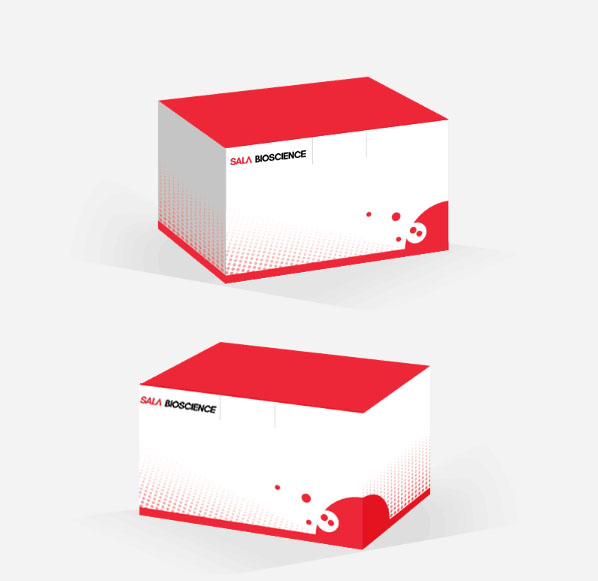Soil Urease (UE) Activity Assay Kit/SLBC0125
- Price:Negotiable
Product Detail
Soil Urease (UE) Activity Assay Kit
Note: It is necessary to predict 2-3 large difference samples before the formal determination.
Operation Equipment: Spectrophotometer/Microplate reader
Catalog Number: SLBC0125
Size: 100T/48S
Components:
Reagent I: Liquid 2 mL×1. Methylbenzene. Storage at 4℃. Required but not provided.
Reagent Ⅱ: Powder ×1. Dissolved with 9 mL of distilled water before use. Storage at 4℃.
Reagent Ⅲ: Liquid 20 mL×1. Storage at 4℃.
Reagent Ⅳ Solution A: Liquid 1 mL×1. Storage at 4℃.
Reagent Ⅳ Solution B: Liquid 4 mL×1. Storage at 4℃. The liquid is placed in the EP tube in the reagent bottle. Before use, add 9.5 mL of distilled water, mix well and wait for use; store the reagent that cannot be used up at 4℃;
Reagent Ⅴ: Liquid 0.3 mL×1. Storage at 4℃. The liquid is placed in the EP tube in the reagent bottle. Before use, add 9.5 mL of distilled water, mix well and wait for use; store the reagent that cannot be used up at 4℃;
Standard: Liquid 1 mL×1, 1 mg/mL standard solution.
Product Description
Urease is an enzyme that catalyzes the hydrolysis of urea into carbon dioxide and ammonia. The microbial quantity of soil, organic matter content, total nitrogen and available nitrogen content have positive correlation with soil urease activity. Soil nitrogen status is determined by soil urease activity. The ammonia is determined by the indophenol blue method, resulting in blue indophenol produced is proportional to the concentration of ammonia.
Reagents and Equipment Required but Not Provided.
Spectrophotometer/microplate reader, thermostat water bath, transferpettor, micro glass cuvette/ 96 well flat-bottom plate, ice, 30-50 mesh sieve (or smaller), distilled water, Methylbenzene (Express delivery not allowed) and distilled water.
Procedure
I. Sample processing:
The fresh soil sample shall be dried by naturally or in an oven at 37℃, and shall be screened through 30-50 mesh.
II. Determination procedure:
1. Preheat the spectrophotometer/ microplate reader for more than 30 minutes, adjust the wavelength to 630 nm, set zero with distilled water.
2. Sample Preparation
Reagent | Test tube | Contract tube |
Air drying soil sample(g) | 0.05 | 0.05 |
Reagent I (μL) | 20 | 20 |
Mix thoroughly, wetting all the soil, place at room temperature for 15 minutes. | ||
Reagent Ⅱ (μL) | 90 | - |
Distilled water (μL) | - | 90 |
Reagent Ⅲ (μL) | 190 | 190 |
Mix thoroughly, culture for 24 hours in 37℃ water-bath. Centrifuge at 10000 g for 10 minutes at room temperature. Take the supernatant for test.
3. Dilute the supernatant 10 times. (Add 0.9 mL distilled water to 0.1 mL the supernatant). Dilute until the absorbance less than 0.5.
4. Prepare standard solution: Diluted the standard to 10, 8, 6, 4, 2, 1, 0.5, 0 μg/mL.
5. Ammonia concentration test
Reagent | Test tube (T) | Contract tube (C) | Standard tube(S) |
Diluted supernatant solution/ Standard solution | 120 | 120 | 120 |
Reagent Ⅳ (μL) | 40 | 40 | 40 |
Reagent Ⅴ (μL) | 40 | 40 | 40 |
Mixed thoroughly, incubate at room temperature for 20 minutes. | |||
Mix thoroughly, set the counter to zero with distilled water at 630 nm and measure the absorbance which noted as A, ΔA=A(T)-A(C). Set a contract cube for each test tube. Make standard curve: Get the standard curve according to standard concentration (y) and absorbance (x, subtract the blank).
Calculation
According to the standard curve, take ΔA(x) into the formula to get the concentration (μg/mL) of sample (y).
Unit definition: One unit of enzyme activity is defined as the amount of enzyme catalyzes the production of 1 μg of NH3--N in the reaction system per day every gram of dry soil sample.
Urease activity (U/g soil sample) = y×10×Vrv÷W÷T=60×y
10: Dilution factor;
T: Reaction time, 1 day;
Vrv: Total reaction volume, 0.3 mL;
W: Sample weight, 0.05 g.
Recent Product Citations:
[1] Hou Q, Wang W, Yang Y, et al. Rhizosphere microbial diversity and community dynamics during potato cultivation[J]. European Journal of Soil Biology, 2020, 98: 103176.
References:
[1] Kandeler E, Gerber H. Short-term assay of soil urease activity using colorimetric determination of ammonium[J]. Biology and fertility of Soils, 1988, 6(1): 68-72.
[2] Witte C P, Medina-Escobar N. In-gel detection of urease with nitroblue tetrazolium and quantification of the enzyme from different crop plants using the indophenol reaction[J]. Analytical biochemistry, 2001, 290(1): 102-107.
[3] Guo H, Yao J, Cai M, et al. Effects of petroleum contamination on soil microbial numbers, metabolic activity and urease activity[J]. Chemosphere, 2012, 87(11): 1273-1280.
Related Products:
